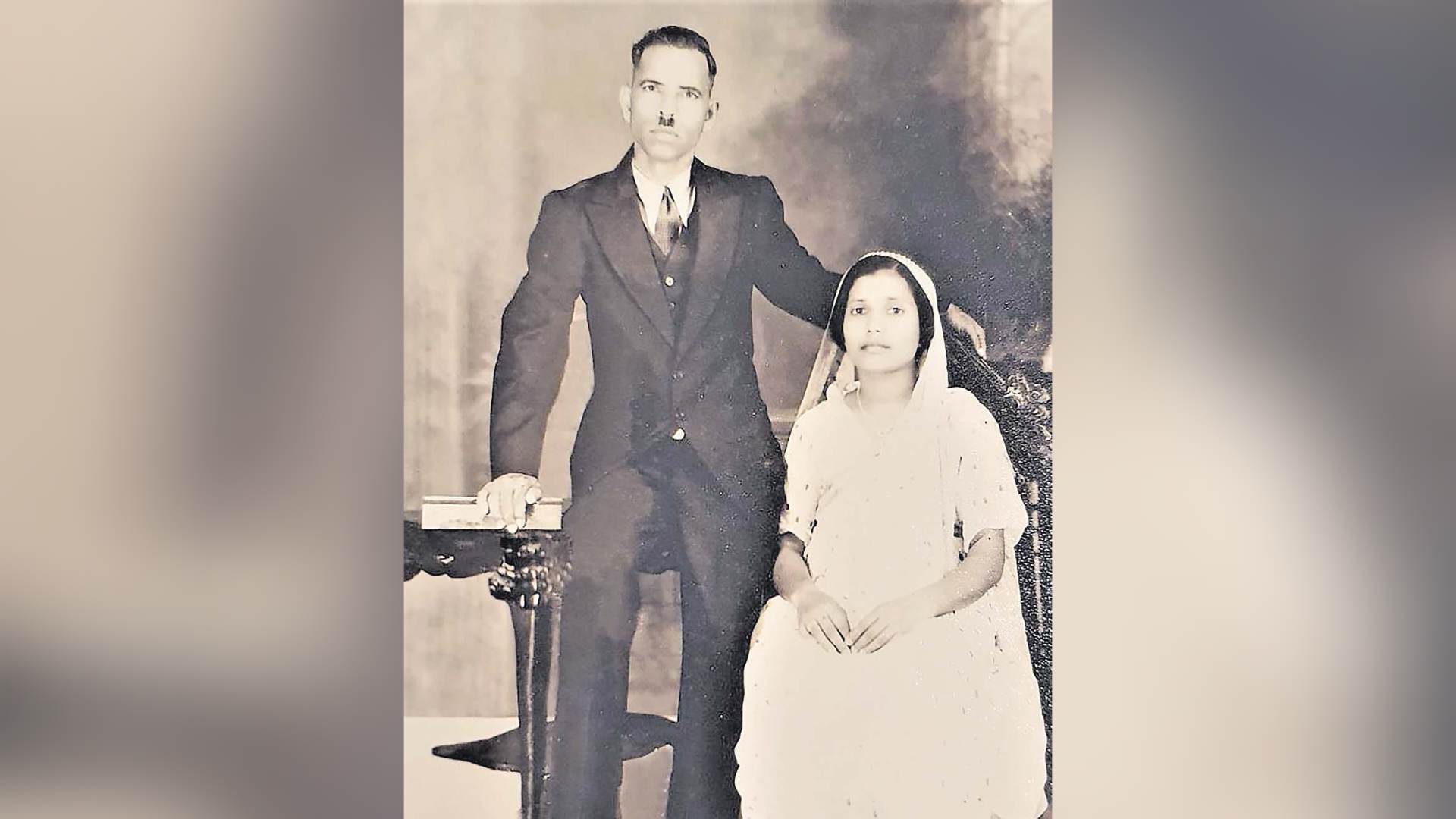Apart from the flow of indentured labourers from India to Fiji in the late 19th and early 20th centuries, entrepreneurs from India also showed a keen interest to do business in the South Sea hub.
By the 1930s, quite a number of Indian businessmen had set up shop in Fiji. While most of them were into clothing and textiles, jewellers and grocery shop owners also grabbed the opportunity to establish their businesses in the country.
A young son of a trader in dry goods from Gorakhpur, India, Ilahi Buksh Ramjan, was one of those. Ramjan migrated to Fiji in 1902 with his father Ramjan Buksh Khan and mum Aliman Nisha.
He was only nine years old. His great-grandson Mosheem Ilahi Khan, 54, of Samabula, Suva recalls the legacy of his greatgrandfather.
“My great-grandfather (from his maternal side) Ilahi Buksh Ramjan was born in 1892 in Gorakhpur, India, and he migrated to Fiji in 1902 with his father Ramjan Buksh Khan (my great great-grandfather) and his wife Aliman Nisha as sole traders of goods from India,” Mr Khan said.
“They operated businesses on Cumming St and Toorak in Suva.
My grandfather Ilahi Buksh Ramjan, known as Ilahi Ramjan, was a well-known figure among the business community in Suva in the early 1900s. He was also a board member of medical institutions in Fiji.

“His first wife was Salikan Nisha and they had a son, Shan Ali (my grandfather), who was married to Khairul Bi Ramjan.
“She was a daughter of Abdul Shariff, a director of Lautoka’s Crown Taxis.” Mr Khan said his grandfather Ilahi Ramjan left Fiji for Sydney, Australia, in 1939 to conduct research into bananas.
“He last visited Fiji in 1962. He married and settled in Australia and had two sons and a daughter.
“He was taken by the Australian Government for research on the banana disease, also known as ‘borer research’. “During his research in Australia, he managed to discover a method of eliminating banana weevil borer.
“While in Fiji, he also had a banana plantation in Waiqanake and later at Waitemata, 10 kilometres from Suva, and he used to export bananas to New Zealand and Australia.
“It was one of the saddest days of his life when weevil borers got into his banana plantation and destroyed it. At that time, there was no way to eradicate the problem and destroy the weevil borer.”
Mr Khan said Ramjan used his experience, and through sheer determination, managed went to Australia and got into borer research.
“He was very successful in this research. He later moved to northern New South Wales and began growing mushrooms. This was a highly successful enterprise which was later brought to an end by the Australian Government.
“Mr Ramjan and one of his syndicates went to Molong, about 200 miles from Sydney in central New South Wales, and began manufacturing humus from straw. He did that for 10 years.
“He later retired due to medical reasons and lived in Dulwich Hill, Sydney.”
Legacy of Karimullah
Mr Khan recalled that his paternal grandfather, Karimullah, came to Fiji during the indenture system on board the last ship in 1916.
“His immigration pass number was 58924. He came to Fiji on the SS Chenab from Gorakhpur, India on August 1, 1916. When he arrived in Fiji, he worked in a rubber factory in Navua and later joined the Fiji Police Force. He got married to my grandmother Aisha Nisha in Fiji.
“During that time, he was a police constable. He also served in the Fiji military. My grandmother collected his medals after he passed away.
“They had eight children all together. “After retiring, he became a locomotive driver for the Colonial Sugar Refinery (CSR) in Lautoka. The train at that time ferried passengers across the Western Division.
“My father Manzur Ilahi Khan worked for the millers and CSR company in his early life and later in various ministries in Fiji across Lautoka and Suva.
“He married my mother Babra Ainul Nisha and they had four children. The eldest was Mirazul Ilahi Khan, followed by Mofeezul Ilahi Khan, Mosheem Ilahi Khan (myself) and the youngest Musheer Ilahi Khan.
“The determination of our ancestors cannot be disregarded as they all contributed to the progress of our beloved nation.
“The black kettle in the photograph is more than 90 years old and belonged to my grandfather Mr Karimullah,” Mr Khan said.
“May God bless all the souls of the Indian migrants who took the risky journey from India to Fiji in order to forge a new life for themselves and their families, and achieve success despite the tough times of the past.”






